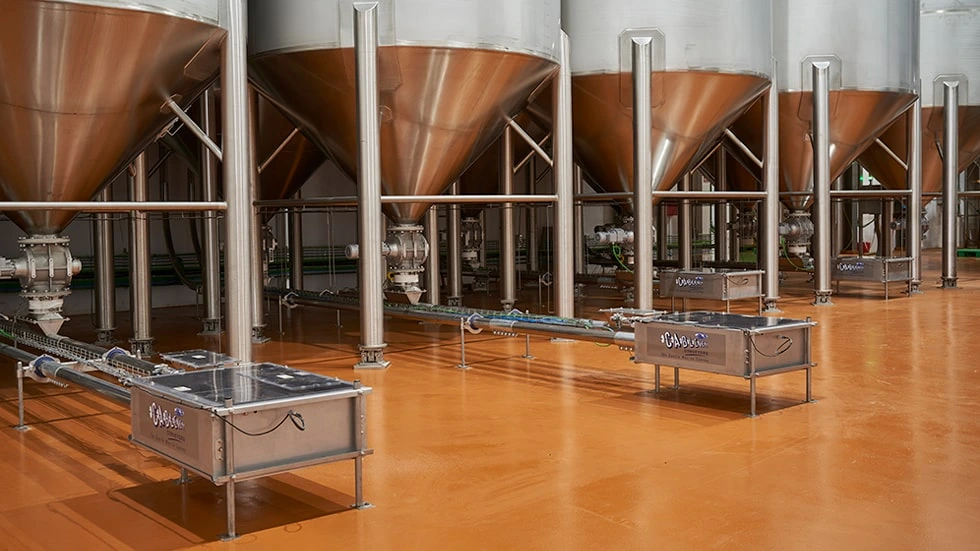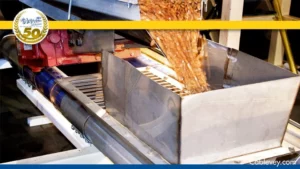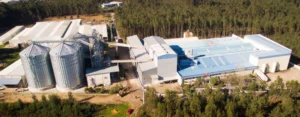In a significant move towards improving its production process, an international almond processor selects Cablevey to reach food safety goals. This collaboration marks a pivotal step for Almendras Llopis in enhancing the safety and quality of its products. Cablevey Conveyors, known for its advanced conveyor solutions, is set to play a crucial role in helping the processor meet stringent food safety standards, thus ensuring the utmost in product integrity and consumer trust.
A Conversation With Cristina Llopis, Technical Director of Almendras Llopis
We had the opportunity to speak with Cristina Llopis, the technical director of Almendras Llopis. With roots dating back to 1923, the Spanish company consolidated its reputation in the international establishment of the almond market. Mrs. Llopis shared some information about what it’s like to be in charge of Almendras Llopis, some of the challenges the company faces, and how the Cablevey Conveyors industrial conveyor systems contributed to the company’s production process.
Q: With almost 50 years of existence, Almendras Llopis is a company with a long history. For you, what is the importance of tradition? How has the company maintained contact with tradition?
A: Almendras Llopis is a family business. We are proud to be a family business. In our opinion, it is very positive that the family is immersed in the processes and is in contact with the plant every day, and they face the problems to immediately solve them. This gives us great flexibility that our customers appreciate. Vicente Llopis, the President of the company, Maria Jose Llopis, CEO, and I, technical director, work together with 80 other people to value the tradition and knowledge of the almond.
Q: What is the most important part of Almendras Llopis? In what ways has its story contributed to its current vision and values?
A: What sets us apart as a company is our reliability and solvency that we make available to our customers every day. Our solvency in always offering the best solution and the best quality in the products we offer. These values of quality, solvency, and responsibility have been strengthened during the trajectory that our company and our family have had during these almost 100 years of history.
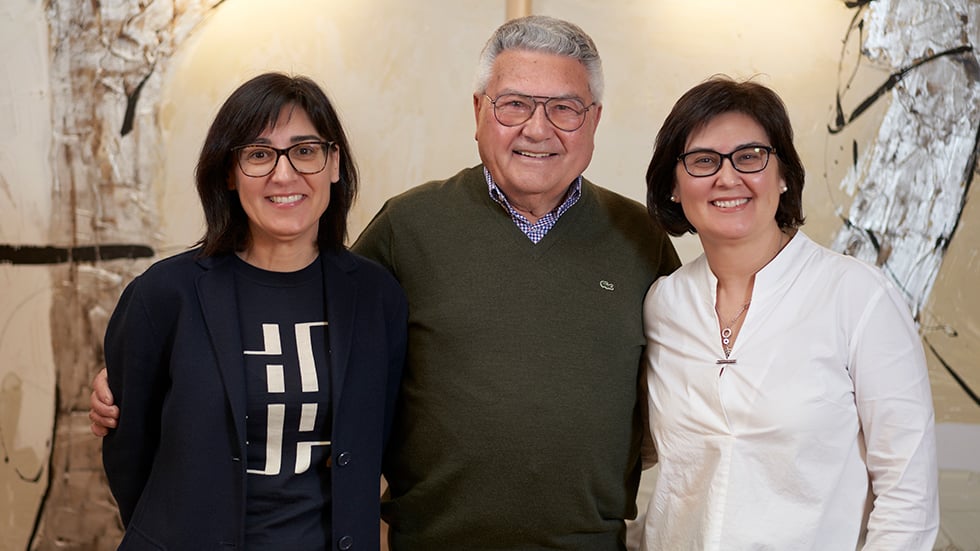
Q: What would you say has changed the most since the early years of the company? What challenges did your family face, and how do they compare to those the company faces today?
A: The challenges during these years have been many, and we have evolved into a more versatile company, we have diversified products, markets, and we have better segmented our client portfolio. Large investments in new equipment, technology, and procedures have allowed us to evolve into the company we are today and have allowed this diversification.
During these last 100 years and working with an agricultural product, we have had to deal with important challenges: harvest declines in Spain, the debut of California as a producer of almonds, establishment in export markets outside of Spain, the constitution of the single European market, and of the single currency, the Euro. I would say that the challenges and opportunities are always there, and the best thing is to know how to adapt the organization to them.
Q: What does it mean to you to work in this important field of the food industry?
A: Working in the food industry is a challenge and a responsibility, but it also allows us to carry out our work in a sector with many changes, novelties, and always opportunities for improvement, which is tremendously enriching. It is very nice to work with a natural, healthy, and sustainable product, which in itself is a nice cover letter.
Q: How important would you say quality control is? In recent years, do you think it has been made easier by new tools or made more difficult by the increasing size and speed of operations?
A: The Quality Department is one of the most important parts for Almendras Llopis. With its creation, Almendras Llopis had the opportunity to open up to new markets and to work with the main companies around the world. The BRC, IFS certifications, and the quality standards of our clients are our quality objectives. The growth of Almendras Llopis and the incorporation of people from different origins and cultures have brought us acceleration in change, transformation, innovation, always maintaining the spirit of tradition and family.
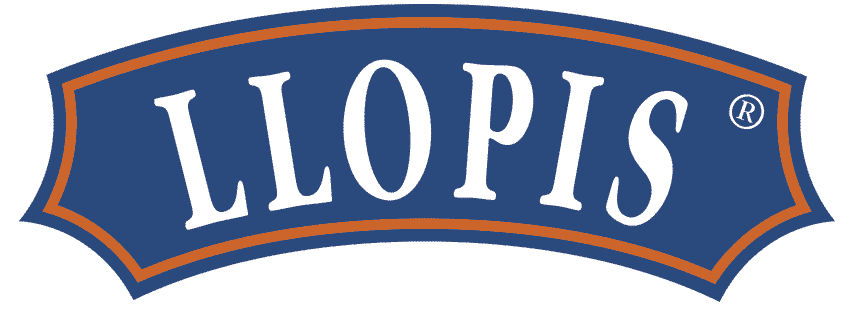
Q: What are the biggest difficulties in working with almonds? Have you ever felt that a piece of equipment was not suited to your specific production needs? In what way?
A: Almendras Llopis has always tried to adapt to what its customers, markets, and human teams were demanding. That is why we have always sought the best way to achieve the objectives set. If we have not found it on the market, we have developed it internally. The challenges that companies face today are complex and constantly evolving. In recent years, technologies have constantly changed, and tools such as artificial intelligence, big data are already becoming a reality to achieve objectives.
COVID-19 has created uncertainty, economic difficulty, that is why technology must be implemented in our companies, and one of the challenges in the case of the almond sector must also be that. Make our companies implement the latest technology. This product comes from the countryside, and although the treatments it receives have improved a lot, we must continue investigating to provide the industry and the consumer with the best quality and the healthiest product.
Q: In what ways have new technologies enabled improvements? Has Cablevey Conveyors contributed to making a better product?
A: Zero foreign matter is an objective of Almendras Llopis. We have always looked for a closed transport. Pneumatic systems have the drawback of breaking the product no matter how slowly they are transported, and they are not suitable for all processes. Cablevey seems to us to be a positive alternative for the transport of products because it is closed, moves the product carefully, and does not use the air for it.
Food safety is very important for Almendras Llopis. The market requires us to improve in this regard. As it is an agricultural product, much has been invested in eliminating endogenous foreign matter, but we must not forget the exogenous foreign matter that can accidentally be incorporated into the product, so the equipment must be selected following food safety criteria. With Cablevey, we have sought food safety and also cleanliness.
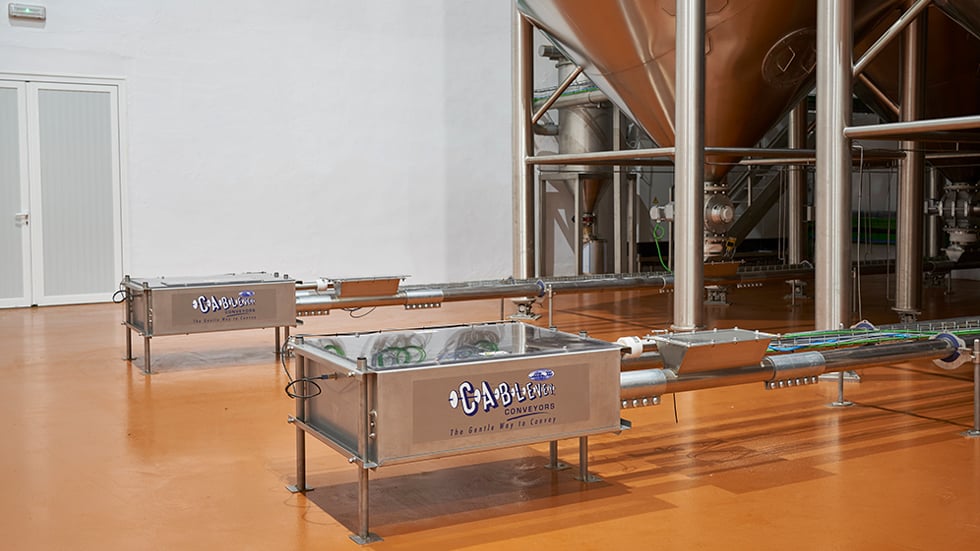
Q: What do you think about the Cablevey system cleaning procedures? Have they contributed to a higher level of productivity?
A: They have different cleaning systems. Depending on the product, one or the other should be used. In any case, there are several alternatives to be able to clean it without disassembling, which saves production time.
Q: One of the main advantages of the Cablevey system is the reduction of particle breakage to almost zero levels. What impact did this aspect have on your production?
A: The product is carefully transported and breaks very little. Other transports have the advantages of the Cablevey, such as pneumatic transport, but no matter how slowly they are transported, they break the product, and others, such as bucket elevators, do not break the product but are open. Cablevey combines both, and although it breaks a percentage, it is very small.
Q: Are you satisfied with the improvements provided by Cablevey Conveyors to your production process? Which advantage would you highlight as the most valuable?
A: It cannot be the only transport in an industry, but we are satisfied with the points in the plant where it has been placed. It will continue to be an alternative in our investments. The greatest value it brings you is in food safety, cleanliness in the plant, and flexibility in the designs of the lines.
Q: What are the plans for Almendras Llopis in the near future?
A: Always incorporate the latest technology in the plant and in the processes, seeking sustainability, food safety, occupational safety, and efficiency. In our near future, Almendras Llopis wants to expand its product portfolio, always handling only almonds in our plant, which is a strengthening at the allergen level.
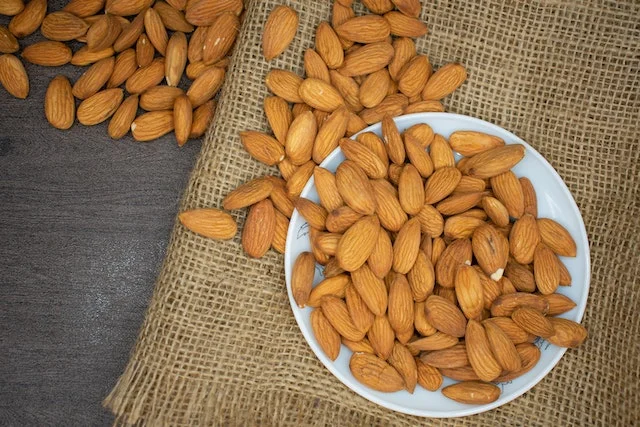
An Enclosed Tubular Conveyor System Is a Top Choice for Any Food Processing Facility
An enclosed tubular conveying system stands out as the premier solution for any food processing facility aiming to elevate its material handling processes. These innovative systems offer unparalleled benefits, including enhanced safety, efficiency, and hygiene, making them an essential component in the modern food industry. Unlike traditional industrial conveyor systems, tubular conveyors encase materials in a sealed environment, drastically reducing the risk of contamination and ensuring the integrity of the food products.
Cablevey Conveyors, a leading figure in the conveyor industry, specializes in providing these state-of-the-art tubular conveyor systems. Our designs prioritize gentle handling of food products, preserving the quality and texture of delicate materials such as nuts, grains, and coffee beans. Furthermore, the enclosed nature of Cablevey’s systems minimizes dust and waste, contributing to a cleaner and safer work environment. The company’s commitment to innovation and quality has made its systems a top choice for food processing facilities worldwide.
Contact Cablevey Conveyors – Our Systems Will Improve Your Production Process
Reach out to Cablevey Conveyors to explore cutting-edge conveyor technologies designed to enhance your production process. Our specialized conveyor solutions are engineered to meet the unique needs of your operation, offering reliability and safety. Whether you’re handling delicate food items or robust materials, Cablevey Conveyors provides systems that minimize product damage and loss, ensuring high-quality output.
Our team of experts is committed to working closely with you to customize systems that fit seamlessly into your existing processes, driving improvements in productivity and operational efficiency. Contact us today and take the first step towards optimizing your production process with our superior conveyor engineering.
FAQ
Why Did the Almendras Llopis Choose Cablevey Conveyors?
Almendras Llopis selected Cablevey Conveyors to achieve their food safety goals due to Cablevey’s reputation for providing advanced conveyor solutions. This partnership is aimed at enhancing the safety and quality of the processor’s products, meeting stringent food safety standards, and ensuring product integrity and consumer trust.
What Are the Benefits of Using an Enclosed Tubular Conveyor System in Food Processing?
Enclosed tubular conveyor systems, like those offered by Cablevey Conveyors, provide significant benefits in food processing by enhancing safety, efficiency, and hygiene. These systems reduce the risk of contamination by encasing materials in a sealed environment, preserving the quality and texture of food products, minimizing dust and waste, and contributing to a cleaner, safer work environment.
How Can Cablevey Conveyors Improve Production Processes?
Cablevey Conveyors can improve the production process by offering specialized conveyor solutions that are tailored to meet the unique needs of each operation. Their systems minimize product damage and loss, which is crucial for handling delicate food items or robust materials. Cablevey’s team works closely with clients to customize systems that integrate seamlessly into existing processes, thereby enhancing productivity and operational efficiency.

